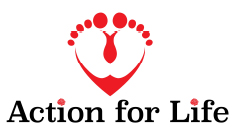From my perspective as a disability justice advocate and scholar, assisted suicide is an ableist public policy that furthers systemic violence and trauma, and it is best to nip the USA assisted suicide movement in the bud and not let that movement get its foot in the door. l think that this reality is perhaps best exemplified in the story of my Canadian friend “Amy.”
I’ve heard a lot of proponents refer to assisted suicide opponents as “cruel,” and I think Amy’s story is a good opportunity for readers to contemplate which public policies are cruel and which are not, especially because the USA death with dignity movement that is pushing Oregon style laws collaborate with people who want to take the United States in Canada’s direction.
Amy is a disabled Canadian who reached out to me and another X user for help after Canada legalized euthanasia for disabled people in 2021. Amy had endured child abuse, which left Amy with PTSD and physical injuries that caused severe chronic pain. As an indigent disabled person Amy was unable to access thorough medical treatment for these disabilities, so even though Amy wanted to live and was deeply offended by Canada’s decision to expand euthanasia to people with disabilities, Amy’s suffering was so great that Amy thought constantly of dying by “MAiD.”
REACH PRO-LIFE PEOPLE WORLDWIDE! Advertise with LifeNews to reach hundreds of thousands of pro-life readers every week. Contact us today.
However, when Amy called a mental health and suicide crisis support hotline for poor people and asked the operator for help fighting against these thoughts, the operator said, “Well, MAiD is a legit and legal option. Maybe it’s something you should consider. The medical system seems to be failing you. And you are never going to get the opiate pain medication that you think you need.”
So, me and this other X user, “Rachel,” took the place of that suicide hotline. For months, whenever Amy thought about applying for MAiD or dying by some other suicide method, we would talk our companion down. The three of us became really good friends. We talked about our experiences with ableism, our struggles to access treatment for our illnesses, what toys we liked as children and our hopes for the future. Various issues had made it impossible for Amy to approach a faith leader about the situation, so Rachel and I did our best to fill that role. At Amy’s request, the three of us prayed together and talked about God.
With help from about ten different people, including the Euthanasia Prevention Coalition, Amy was eventually able to take a train four hours away from home and show up in the emergency room of a hospital that opposes “MAiD” and specializes in chronic pain and mental illness. Amy finally received excellent care. Although Amy sometimes still has symptoms of chronic pain and PTSD and life is still often quite a struggle, Amy’s symptoms are manageable and Amy is not planning to die by “MAiD.” It was my honor to attend Amy’s Zoom birthday party recently.
But thanks to Compassion and Choice’s friends in Canada and the systemic ableism that is enabling their cause, the Canadian medical system would have killed Amy before providing adequate medical treatment or support.
I am not sure what happened to Rachel. Rachel shared that she now has to walk past a “MAiD provider’s” office at every psychiatrist appointment, that this is traumatic and that appropriate accommodations for her physical disabilities are often not available. We have not heard from Rachel in over a year. I hope Rachel is alive.
I’ve read statements from proponents of recent assisted suicide bill’s saying that their supporters are “real people with grief and loss, not hypothetical scenarios.” Well, Amy and Rachel are not hypothetical scenarios, they are my friends. I’ve read statements describing myself and other disability rights movement opponents of assisted suicide as “abusive, bullying and cruel.”
But I can think of few things more abusive, bullying and cruel then for a suicide prevention hotline operator to tell a caller to go ahead and be killed. I don’t want to live in that world, and like others in the disability justice movement I won’t be quiet while the proponents lay the scaffolding for that to happen.
I’m sorry if that makes me cruel.




